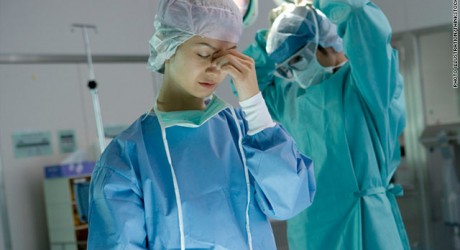Contrary to popular belief, surgeons are affected by the outcomes of major surgeries. Researchers from the Imperial College in London in the UK said that the operating room carries the highest risk for complications and as such, these hindrances can have serious implications for patients and doctors alike.
According to the new study published in the British Journal of Surgery, many surgeons have emotional issues after major surgical complications but they need resources for better support regarding these traumatic events.
“Surgeons are typically regarded as more tough-minded than other healthcare professionals and there is indeed some evidence that this is the case. The present study found, however, that there is a considerable variation in both the nature and severity of reactions to complications, with some surgeons being much more affected than others,” the BJS reported.
The investigators interviewed 27 surgeons from two teaching National Health Service (NHS) Trusts in London, UK. In order to participate, the surgeons all had to have several years’ experience beyond Registrar and also be experienced in vascular surgery, procedures of which are noted to have a higher risk of complication.
The study revealed that doctors who had experienced a surgical error were prone to depression, fatigue and a lower quality of life which begs the question of psychological support and counselling for doctors post-surgery.
The investigation was led by Dr. Anna Pinto. She examined just how surgeons were affected by complications in surgery and how this affected not only their professional but personal lives. All participating surgeons also took a face-to face interview with investigators with experience in psychology and patient safety research.According to the report, 26 out of 27 surgeons said that a surgical complication affected them significantly with 15 feeling guilt and between three and eight surgeons said that their sense of self-confidence as surgeons was diminished. The surgeons also experienced sadness and worry for their patients, the report added. Perhaps just as impactful, was the fact that many of these surgeons said that their surgical practice suffered and 21 surgeons admitted that complications had a behavioral impact on their lives.
The doctors were concerned post facto on how the complications could have been avoided and the investigations also looked at the surgeons’ history, personality, outcomes and interactions with patients, the reactions of colleagues in a post-complication aftermath, as well as the institutional culture within which they worked.
Further, it was found that support systems were highly inadequate and that surgeons preferred a more “formal setting” for support. The report suggested that ideally surgeons could benefit from a strategic plan to support surgeons and help them cope along with mentorship programmes, counselling, mortality and morbidity meetings, psychological intervention and a strong team spirit to bolster an affected surgeon in “distress”.














